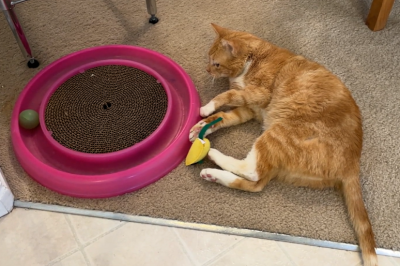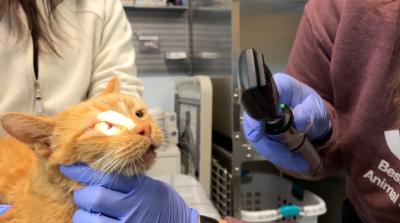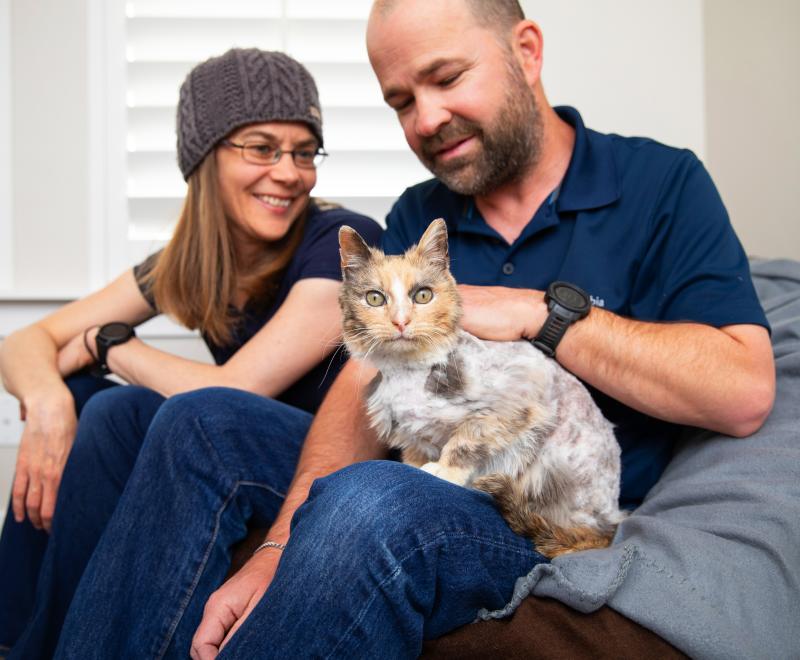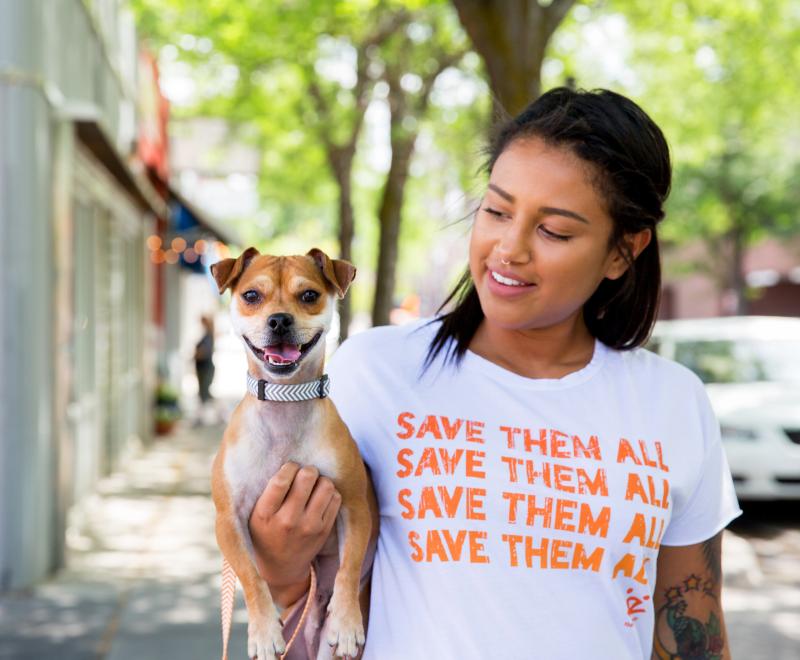Senior cat keeps on truckin’

Most cats don’t love car rides. But Captain Pearl isn’t most cats. In fact, this 12-year-old orange tabby has driven more miles in the past year than most people.
That’s because his human, Amy Wheeler, is a truck driver. When Amy makes deliveries across the country, she brings her best bud along for the ride.
“It definitely takes a special kind of cat to move around in a truck,” she says.
[Traveling With Pets: Tips for a Pet-Friendly Vacation]
Captain Pearl is precious cargo.
Seeing the bond Captain Pearl and Amy share, you’d think they’d known each other forever. In reality, the two met just recently.

Healing journey
Amy was saddened by the loss of her 15-year-old cat, Ellie, but didn’t think she was quite ready for another pet. So she signed up as a Best Friends foster volunteer. Because of her experience caring for Ellie, she offered to provide a temporary home to a kitty with special medical needs.
Around the same time, Captain Pearl ended up in a shelter in Utah before coming to the Best Friends Lifesaving Center in Salt Lake City. He had one of the worst cases of feline dental disease the Best Friends veterinary staff had ever seen. They also discovered he was blind in one eye. The lens in his right eye had been dislocated, which is often the result of trauma. To prevent pain and infection, his eye and all his teeth would need to be removed.
Senior pets who need extensive medical care are often at risk of being killed in shelters that are already full and struggling to place younger, healthy animals. Best Friends’ goal is for every shelter in the country reach no-kill by 2025, and by working together to save animals like Captain Pearl, shelters are reaching that goal.

Road to recovery
Captain Pearl went to stay with Amy not long after he arrived at Best Friends. The laid-back kitty was affectionate and comfortable right away.
“The moment I brought him home, I let him out. He acted like I had been around for a long time; we were just in a new place,” Amy says. “We were instantly friends.”
Amy took excellent care of Captain Pearl as he recovered from his surgeries. She administered medications and eye drops daily, which he handled (or at least tolerated) like a champ. Happy and pain-free, Captain Pearl started to act like a kitten again, batting toys around the kitchen. After a good play session, he would snuggle on the couch and make biscuits with his purr motor turned up to the max.

In it for the long haul
What was supposed to be a rest stop turned out to be Captain Pearl’s destination. Amy realized Captain Pearl was already home, so she adopted him. That’s when she started acclimating him to join her when she’s at work as a truck driver.
He has a special seat in the truck next to Amy where he can rest comfortably and watch the world go by. Just like at home, he has designated spots for his food bowl, water bowl, and litter box.
[Two blind cats, an RV and a happy life]
“Once they get used to driving or being on the road in a moving vehicle, there’s not a lot of maintenance besides what you would do in your house,” says Amy. “They just sleep and hang out. That’s all they do at home, so they can do it in a truck.”
“He just needed some lovin’, and I needed some lovin’ as well,” says Amy. “I just fell in love with him, so I kept him ever since.”
Today, Captain Pearl splits his time between his home and the open road, exactly where he’s meant to be.

Let's make every shelter and every community no-kill by 2025
Our goal at Best Friends is to support all animal shelters in the U.S. in reaching no-kill by 2025. No-kill means saving every dog and cat in a shelter who can be saved, accounting for community safety and good quality of life for pets.
Shelter staff can’t do it alone. Saving animals in shelters is everyone’s responsibility, and it takes support and participation from the community. No-kill is possible when we work together thoughtfully, honestly, and collaboratively.






